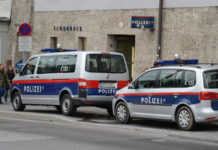Russia has launched its first airstrikes against rebel-held targets in Syria, two days after the Russian president, Vladimir Putin, spoke to the UN and called for an “international coalition against terrorism to fight ISIS”.
However, there were concerns among rebel groups that Russia was targeting all forces opposed to President Bashar al-Assad, rather than focusing on ISIS.
A spokesman for Russia’s defence ministry confirmed Russia had hit military and communication equipment “belonging to terrorists” in the country this afternoon.
Speaking outside Moscow on today, Putin said Russia would not “plunge headfirst” into the conflict, but would provide temporary air support for a Syrian army offensive.
At the Pentagon, US officials said the strikes did not appear to be targeting areas held by ISIS, and signalled deep dissatisfaction with Russia, piercing the veneer of cooperation that Barack Obama and Putin sought to establish at the United Nations this week.
Syrian rebels and opposition media outlets claimed that Russian aircraft carried out strikes in the central provinces of Homs and Hama that allegedly killed at least 24 people.
Activists in Hama said Russian fighter jets targeted the town of Lataminah, north of the city. The Homs Media Centre, a pro-rebel media outlet, identified 22 individuals killed in what was described as Russian strikes in the town of Talbiseh, in the north of the province. It was not possible to immediately verify these claims.
Subscribe to our newsletter and stay updated on the latest news and updates from around the Muslim world!
Other video footage from Hama showed warplanes that the opposition said were Russian jets, but which were difficult to identify positively from a distance.
A commander with a Syrian rebel group known as Tajammu al Izzah, which operates in northern Hama and claims allegiance to the umbrella group the Free Syrian Army, said his organisation’s headquarters were targeted by Russian warplanes.
If true, the attacks are an indication that Russia’s campaign in Syria is targeting all opposition fighters battling to topple the Assad regime, rather than focusing on ISIS.
The apparent geography of the strikes also raises doubts that US and Russian pilots would in fact risk a confrontation. The early reports from the anti-Assad activists in Hama and Homs suggest the strikes occurred further west than the US has ever bombed, deep into territory where the Assad regime still maintains a tenuous hold, and in likely range of its air defences. The US claims it has not carried out airstrike in territory where ISIS and Assad are actively fighting for control.
The UK foreign secretary, Philip Hammond, said the impact of the Russian strikes would depend on their targets, which Britain had yet to establish.
“These are the first Russian strikes and the targets will be symbolic. The targets won’t have been selected by accident,” Hammond told journalists shortly before a Russian-chaired session of the UN security council on the issue. “If they have selected a target that is clearly an Isil target away from regime strength, they’ll be sending us a signal that they want this intervention to be seen as a counter-Isil intervention.
Hammond added: “If they are in an area where there are heavy regime engagements going on, that will send a much more mixed message. If they’re in an area where there’s no Isil it will send a very clear message that the intervention is there to support Assad.”
Earlier on Wednesday, Putin received permission from parliament for Russian forces to take part in the bombing raids. The federation council, Russia’s upper house of parliament, held a swift, closed session on Wednesday morning in which it unanimously approved Putin’s request.
Russian officials have said Assad had asked Russia for military assistance, making Russia’s actions legitimate.
Putin had told the UN the world should come together to fight ISIS in the same way as it joined forces to fight Hitler in the second world war, though differences between Russia and the west over the role and fate of Assad have always made it unlikely that a broad coalition will emerge.






![The History of Sylhet and British Bangladeshis [Short Film]](https://5pillarsuk.com/wp-content/uploads/2024/11/IMG_3518-218x150.png)













